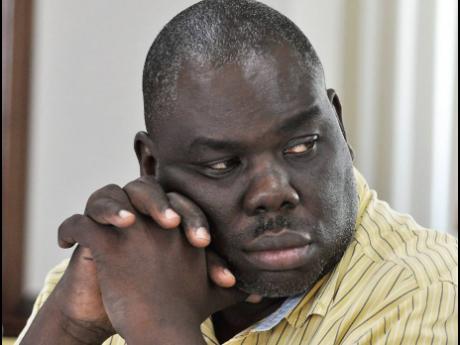COVID-19 crunch - Some 300 UWI students apply for leave of absence
At least 300 students at The University of the West Indies, Mona have applied for leave of absence because of COVID-19-related challenges.
Since the onset of COVID-19, students have been grappling with financial issues, lack of resources and no internet connectivity, which has heavily influenced their decision to take a leave of absence.
Aside from financial constraints, some students have been forced to make this decision based on a range of psychosocial issues, such as anxiety and depression.
President of the UWI, Mona Guild of students, Sujae Boswell, said they are working on a partnership to provide the option of telemedicine at a discounted rate for students to have access to online consultation, which would facilitate more options for counselling.
“Students have been complaining about the fact they have been socially isolated and that is having a toll on them, and many just feel as if they are so pressured that they can’t manage to study.
“For persons who have emotional issues to deal with, for persons who are facing some level of depression, some of those students did reach out to say that they will be taking leave of absence instead of making it affect their grades,” said Boswell.
Though the application deadline for leave of absence was October 1, there is a chance that some students will be forced to quit school because of their challenges.
Some 17,571 students have registered for the 2020-2021 academic year thus far, as opposed to 17, 800 that were enrolled last year this time.
Campus Registrar of the UWI, Mona, Donovan Stanberry, said that though the numbers have declined, it is not alarming, given the circumstances.
“The total number of students we had last year was 19,152, so [the number that have gone on leave of absence] is concerning, but not alarming. Having said that, it is our wish and desire that all continuing students enrolled last year will continue this year, and that as many new students that we make offers to actually register,” he said.
He explained that around four weeks ago, the number of registered students were around 14,000. Consequently, a team was mobilised to reach out to returning and prospective students who were yet to register.
“The response has been tremendous. We were able to give some of them financial and academic counselling and as a result, since we started that, our registration numbers went up by over 2,000. We hope that we will get to at least 18,000 by next week,” said Stanberry.
The university has invested in partnerships to provide devices for students, but awaits the fulfilment of the Government’s plan to improve internet connectivity across the island as that is major a hindrance to students with devices.
CALL FOR DONATIONS
Boswell expressed that with all the assistance that has been given thus far, it is still not enough to cater to those who are in need. He is calling for the support of corporate Jamaica and individual citizens to make donations to schools and students.
In the meantime, the Guild of Students has taken the necessary steps to increase funding for the financial assistance programme and soon they will be providing data plans for students who have difficulties with that.
For this academic year, the guild has lobbied for the decrease of the miscellaneous fees and concessions regarding the payment plan. Along with the miscellaneous fee, students on the payment plan were required to pay 15 per cent of the semester’s fee, instead of the formerly required 25 per cent.
The December deadline has been extended to January 31, 2021. Boswell said the guild will be advocating for these amendments to be extended to the second semester.
Stanberry said that the decline in registration, coupled with other COVID-19-related challenges, has forced the university to revise its finances.
“... We are looking at our own costs in the university to see where we can cut costs without compromising our quality. Where there is excess, we are cutting that out,” he said.
He further explained that a few courses are no longer offered because of the small number of students that were registered for them, and that the university has opted to merge the streams for some online courses.
“Since we have an online platform, we can have bigger classes ... .We have a campus in western Jamaica; sp instead of having a teacher there and a teacher here, because it is online, we only need one teacher” he said.
This strategy was implemented to make do with more full-time lecturers instead of engaging a large number of adjunct and part-time lecturers.
Despite the efforts to reduce costs, Stanberry expressed that it is highly likely that there will still be a deficit.


